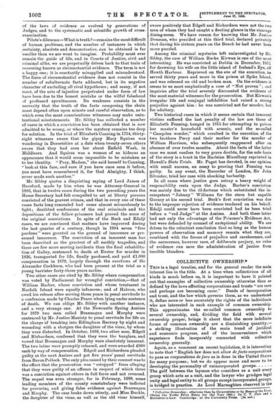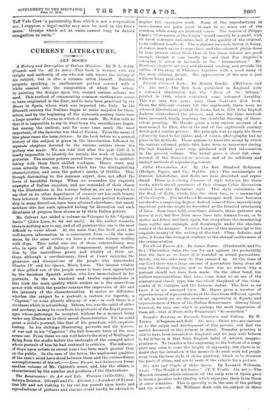COLLECTIVE OWNERSHIP.*
TRH is a legal treatise, and for the general reader the main interest lies in the title. At a time when collectivism of all kinds is much before us, it is important to have it pointed out that examples of collective ownership otherwise than as defined by the laws affecting corporations and trusts "are rare and perhaps are becoming rarer." Deeds of incorporation and trust, and the law which governs them, as we understand it, define more or less accurately the rights of the individuals who are interested in each example of common ownership. This approximates the so-called common ownership to several ownership, and, dividing the field with several ownership proper, brings it about that the more indefinite forms of common ownership are a diminishing quantity,-,— a striking illustration of the main trend of juridical and economic progress, and of the inconvenience which experience finds inseparably connected with collective ownership generally. Again, as a comment on recent legislation, it is interesting to note that "English law does not allow de facto corporations to pass as corporations de jure as is done in the United States for many purposes ; but we do appear more and more to be developing the personality of unincorporated groups ...... The gulf between the layman who considers as a. unit everV group which acts as a unit, and the lawyer who grudges legal unity and legal entity to all groups except incorporated groups, is bridged in practice. As Lord Maenaghten observed in the * Collective Ownership: otherwise than by Corporations or by Means of the Pratt. (Being the Yorke Prize Essay for the Yeur 1905.) By C. T. Carr and a Barristter-a-Law. Cambridge : at the University Press. Os. net.1
Taff Vale Case 'a partnership firm which is not a corporation nor, I suppose, a legal entity may now be sued in the firm's cfreups which act as units cannot long be denied recegnition as units."























































 Previous page
Previous page